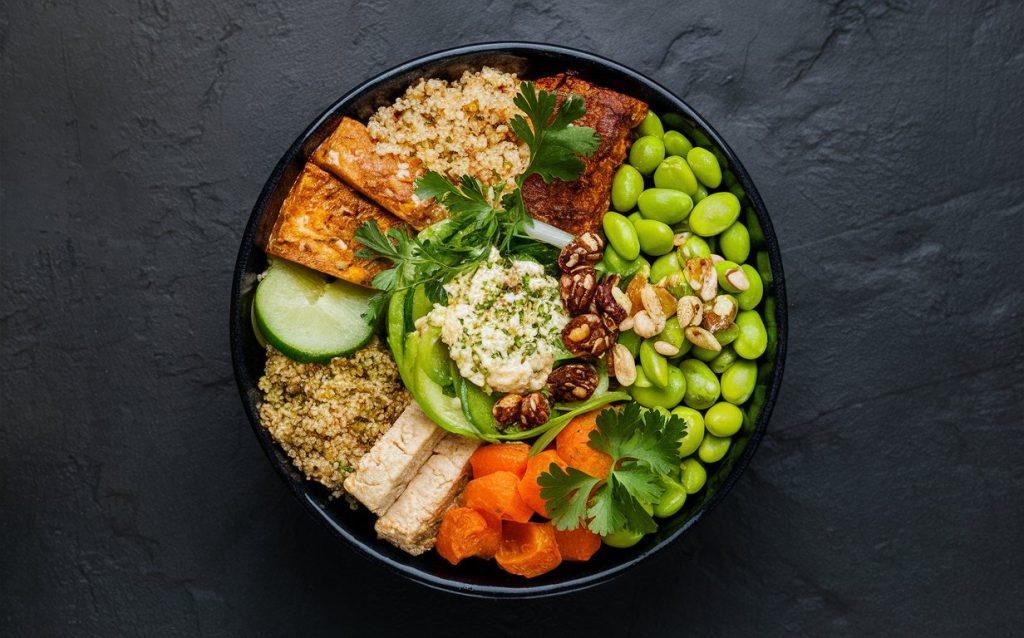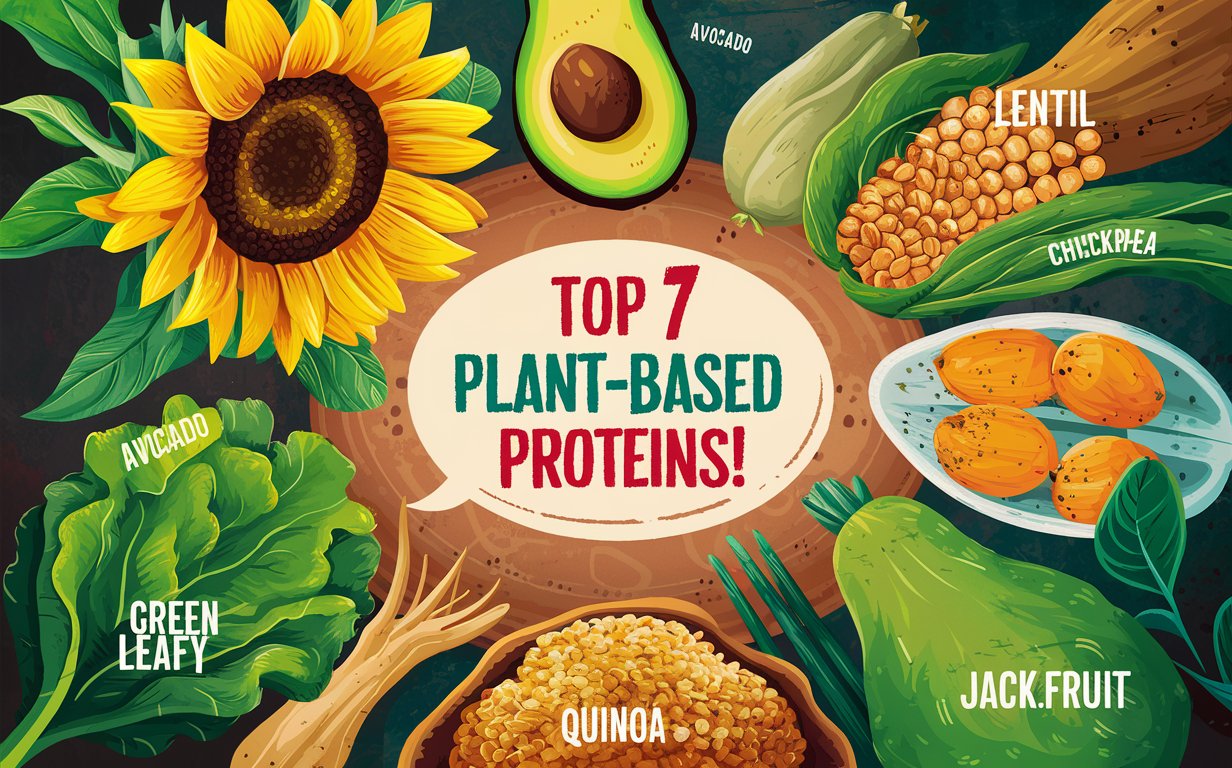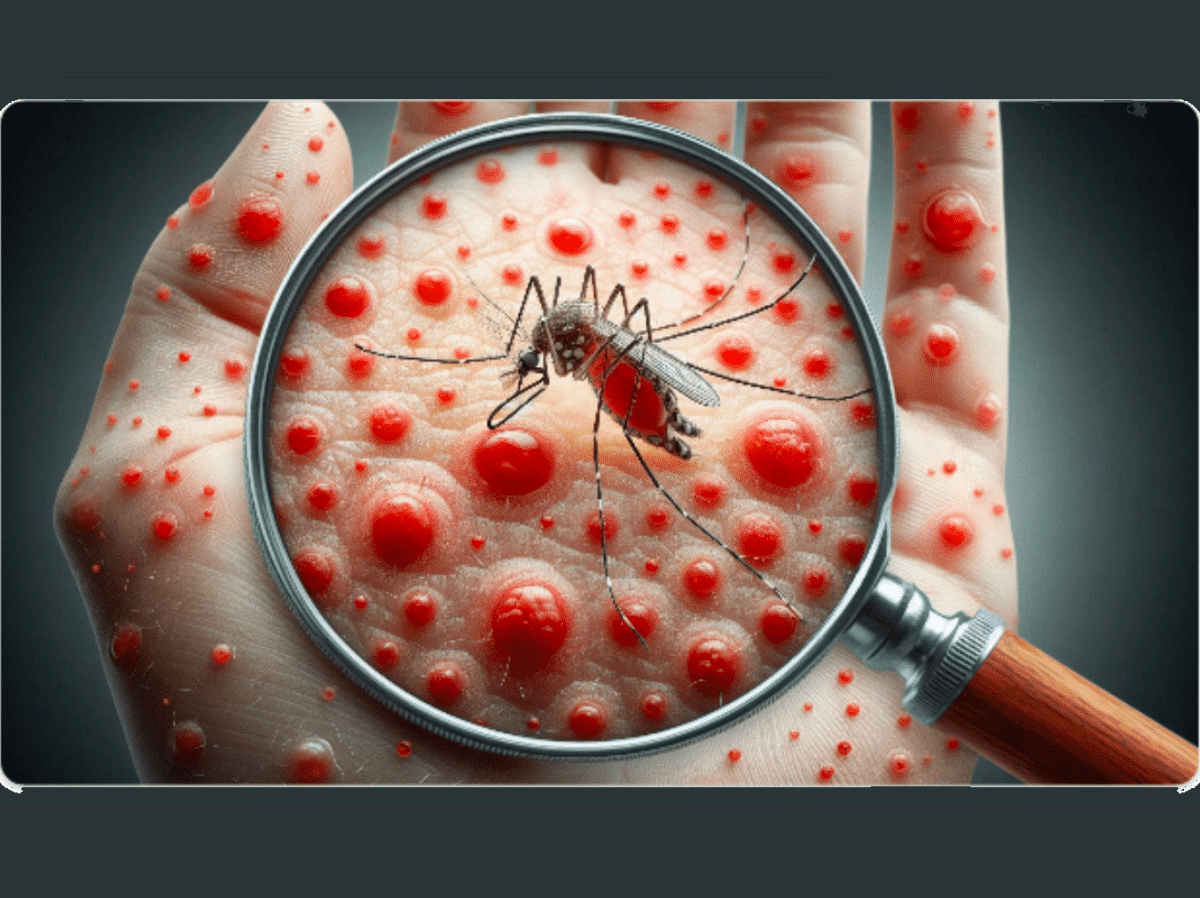Explore the top plant-based protein sources that can power your workouts, boost muscle growth, and support overall health. Discover versatile options and their benefits for a strong, vibrant body!
When we talk about eating for fitness, many people think of meats like chicken or beef, or foods like milk and cheese for protein. But there’s a growing range of plant proteins that are just as good for building and fixing muscles. These plant proteins also have extra health benefits.
Plant proteins are good for:
- People who don’t eat meat or animal products
- Anyone who wants to try different healthy foods
- Those looking to improve their overall health
You don’t have to be vegetarian or vegan to enjoy plant proteins. Even if you eat meat, adding more plant proteins to your meals can make your diet healthier and more varied. Learning about these plant proteins can change how you think about food and health. It opens up new, tasty ways to eat well and stay fit.
Understanding Plant-Based Proteins
Proteins are important for our bodies. They help fix muscles, control hormones, and keep us healthy. For a long time, people thought animal foods were the best for protein because they have all the building blocks (called amino acids) our bodies need. But now, more people are eating plant proteins. These come from foods like beans, lentils, nuts, seeds, and soy. Plant proteins might not have all the building blocks in one food.
But if you eat different plant foods together, you can get all the protein parts you need. For example, eating rice and beans together gives you a full set of protein-building blocks. Plant proteins are becoming popular because they’re good for your health in many ways. Although they differ from animal proteins, if you eat a range of plant foods, they can still provide your body with the nutrients it needs.
The Benefits of Plant-Based Proteins

Plant-based proteins offer several advantages over animal-based proteins. Here’s a closer look at why you might want to consider integrating more plant-based options into your diet:
Fights Bad Stuff in Your Body: Plant proteins have special helpers called antioxidants. These are derived from seeds, nuts, and vegetables. They aid in reducing body edema and preventing illness.
Good for Your Tummy: Many plant proteins have fiber. Fiber helps your tummy work well by feeding good bacteria. It also makes you feel full, so you don’t eat too much.
Keeps You Healthy: Eating lots of plant foods can help your heart and may stop some kinds of cancer. It might even help you live longer. Eating more plant proteins is a good way to stay healthy.
Saves Money: Foods like beans and lentils are often cheaper than meat and milk products. They provide you with less harmful fat, more fiber, and protein. This implies that you can eat well without going over budget.
Top Plant-Based Protein Sources
If you are ready to eat more plant-based proteins, here are a few of the best plant-based sources: Know More – https://www.eatingwell.com/article/291111/the-10-best-vegan-protein-sources/
Tempeh
Tempeh contains a high amount of protein due to being a fermented soy product. Approximately 34 grams of protein can be found in one cup of tempeh. Its texture is firm and it has a nutty flavor, which makes it a great choice for adding to salads, stir-fries, and sandwiches.
Tofu
Tofu is a food made from soybeans. It comes in different types, from very soft to very firm. One cup of tofu gives you about 20 grams of protein, which is a lot. You can cook tofu in many ways:
- Soak it in flavors (marinate)
- Bake it in the oven
- Cook it in a pan
- Mix it into drinks (smoothies)
Tofu is great because you can use it in many dishes to add protein. It’s also good for people who don’t eat meat.
Edamame
Edamame are young soybeans. They are:
- Tasty
- Full of protein
- Easy to eat
One cup of cooked edamame gives you about 18 grams of protein. That’s a lot!
You can eat it in different ways:
- As a snack
- In salads
- As a side dish with your meal
Edamame is good for you and can help you get enough protein, especially if you don’t eat meat. They’re also fun to eat because you can pop them out of their pods.
Lentils
Lentils are tiny, spherical seeds full of nutrients. When cooked, they provide an astounding 18 grams of protein per cup! They also contain iron to boost your blood and fiber to keep your stomach full. Lentils are beneficial to all people, even vegans. As a side dish or in a variety of soups and salads, lentils are a great fit. They are inexpensive, easy to maintain in your kitchen, and come in a variety of colors. Lentils are a terrific option if you’re trying to eat healthier or just want to make something yummy for dinner.
Chickpeas
Garbanzo beans, also known as chickpeas, are small, round legumes that offer excellent nutritional benefits. With approximately 15 grams of protein in just one cup of cooked chickpeas, they are a fantastic source of this essential nutrient. Their versatility makes them a valuable addition to various dishes. Whether mashed into hummus, added to spicy curries, or used to thicken soups, chickpeas add flavor and substance to meals. Some individuals also like to roast chickpeas to make a crunchy and pleasant snack. Most supermarkets have chickpeas, easily accessible in both dried and tinned varieties. They can help prepare healthy meals and are inexpensive and long-lasting.
Pistachios
While not as high in protein as some other sources, pistachios provide around 6 grams of protein per quarter-cup serving. They are also a good source of healthy fats and can be enjoyed as a snack or in salads.
Soy Milk
One of the more popular cow’s milk alternatives, soy milk, offers about 8 grams per cup. It’s good for those who are lactose intolerant or raising their vegan flag high.
Conclusion

Switching to plant-based protein sources doesn’t mean compromising on your fitness goals. With a wide array of options available, you can enjoy delicious, nutritious meals that support muscle growth and overall health. Whether you’re a seasoned athlete or just beginning your fitness journey, these plant-based proteins can help you stay strong and satisfied.



 By
By









 By
By







